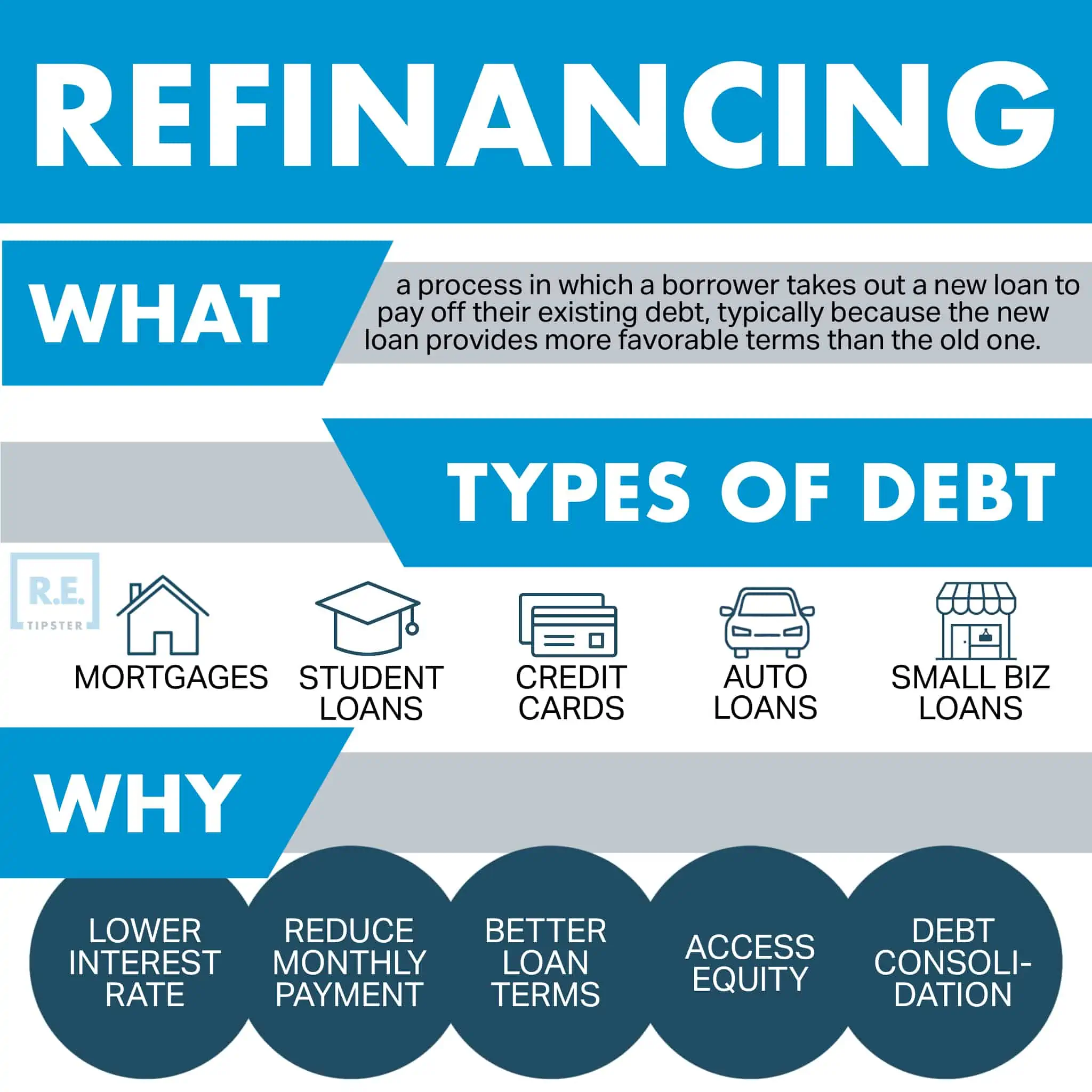What Is a Novation in Real Estate?
REtipster does not provide legal advice. The information in this article can be impacted by many unique variables. Always consult with a qualified legal professional before taking action.
Shortcuts
- Novation is a legal process that transfers contractual rights and obligations from one party to another.
- It’s more common in commercial real estate due to these transactions’ complexity and long-term nature.
- Real estate novation has three main types: complete novation, partial novation, and debt novation.
- Novation differs from assignment in that it transfers both rights and responsibilities, while assignment only transfers rights.
- While offering flexibility and continuity in real estate deals, novation can be complex and requires all parties’ consent.
Understanding Novation
In broad terms, novation is a legal instrument that allows for a smooth transfer of contractual obligations from one party to another. It transfers both rights and obligations to a new party.
In real estate transactions that can be complex and long-term, novation can be essential for maintaining flexibility and continuity. It ensures that deals can continue even when circumstances change, providing a valuable tool for both buyers and sellers.
For example, a buyer can use novation to transfer their purchase rights to someone else. Similarly, an investor can use this process to transfer ownership or management of a property to a different entity.
Novation in Real Estate
Novation is more common in commercial real estate because of the following reasons:
- Commercial deals are often more complex and involve larger sums of money.
- Commercial leases and agreements typically last longer, increasing the chances that changes will be needed.
- Businesses frequently restructure, merge, or get acquired, requiring contract transfers.
- Commercial real estate professionals are usually more familiar with novation.
- Commercial properties need to adapt more often to market changes or new business needs.
One instance where novation is useful is when a business is sold. In this scenario, business stakeholders can use novation to transfer leases to the new owner, freeing the original tenant from their obligations. It also allows developers or investors to be replaced on large projects without disrupting the ongoing work.
Novation is also useful in transferring mortgage obligations to a new borrower during refinancing or sales. It also helps to smoothly transfer service contracts, like property management or maintenance agreements, when ownership changes.
Meanwhile, novation in commercial real estate partnerships allows partners to join or leave the project without disrupting the overall investment structure.
In contrast, residential real estate deals are usually simpler, shorter-term, and less likely to need the kind of party substitutions that novation provides. While novation can happen in residential real estate, it’s not as common or necessary as in the commercial sector.
Types of Novation in Real Estate
There are several types of novation commonly used in real estate transactions:
Complete Novation
A complete novation in real estate means transferring all rights and responsibilities of a contract to a new party. This is common in property sales, where the new owner takes over everything the previous owner was responsible for.
For example, if a commercial building with tenants is sold, a complete novation would mean the new owner takes over all landlord duties: managing leases, handling maintenance, and collecting rent from tenants. In essence, the new owner steps into the shoes of the previous owner, inheriting all the obligations and benefits of the original contract.
Partial Novation
Partial novation is like a “pick and choose” transfer of rights and responsibilities in a contract. Instead of transferring everything, only certain parts are handed over to a new party. This is helpful in complex real estate projects where various entities are in charge of different parts.
For instance, imagine a large development project where the original developer wants to focus on project management and marketing. They can use partial novation to transfer the construction responsibilities to a specialized construction firm. This way, the original developer retains control over the overall project while the construction firm handles the building process.
Debt Novation
Debt novation is similar to a debt handoff. It involves transferring debt obligations from one party to another. This is especially useful in real estate financing, where property owners or developers might need to restructure their debt.
For example, if a property owner is struggling financially and facing foreclosure, they could use debt novation to transfer their mortgage obligations to a financially stronger entity. This allows them to potentially avoid foreclosure and keep their investment.
Contract law further subdivides debt novation as either falling into the standard, expromissio, and delegation subcategories. In a standard debt novation, the parties remain the same; only the contract is changed. Meanwhile, in an expromissio debt novation, a new debtor takes on the financial obligation. Finally, in delegation, a new creditor is introduced, to which the debtor must pay their debt.
Using Novation as a Real Estate Investment Strategy
Novation offers real estate investors a flexible tool to manage their portfolios and strategies. It allows for transferring properties between investment entities, facilitating exits from deals, and assuming favorable contracts. Investors can use novation to restructure partnerships, take over advantageous leases or loans, and manage risk in development projects.
Say you own a building as an individual, but you want to transfer it to your company. Novation lets you do this by essentially replacing yourself in the contract with your company.
Novation is also great when you want to get out of a deal. Instead of trying to sell a property, you can sometimes transfer your entire position—including any promises you’ve made—to another investor. This can be easier and quicker than a traditional sale.
Additionally, in distressed property scenarios, novation helps renegotiate terms with lenders or take over contracts under better conditions. It’s also useful for updating lease terms when acquiring properties, potentially improving cash flow or value.
To use novation effectively, investors should:
- Look closely at any existing contracts.
- Talk to lawyers and tax experts to understand what it means for you.
- Be clear about what you want when negotiating the novation.
- Make sure everyone involved agrees to the change.
- Keep good records of everything.
Novation vs. Assignment of Contract
Novation is similar to a type of real estate wholesaling called an assignment of contract (or simply just assignment). However, they work differently.
Assignment only transfers rights, not responsibilities. The original person still has to fulfill their duties. Novation, on the other hand, transfers both rights and responsibilities. In novation, the original person is completely off the hook, and a new person takes over all rights and duties.
In an assignment, a wholesaler typically finds a property for sale and gets it under contract, then finds another buyer willing to pay more. They then sell their right to buy the property to this new buyer, usually for a fee. Finally, the new buyer completes the purchase directly with the original seller.
The key difference is that in an assignment, the wholesaler never actually owns the property. They’re acting as a middleman, finding good deals and passing them on to other buyers for a profit.
Novation involves completely transferring an existing contract, while wholesaling (assignment of contract in this case) involves finding properties and selling the right to buy them to others.
Note that another form of wholesaling, double closing, is another thing entirely and is typically much more distinct from novation. The wholesaler in a double closing usually owns the property, albeit briefly.
RELATED: Wholesaling Real Estate: Is It Legal In Your State?
Pros and Cons of Novation in Real Estate
Pros
- Flexibility: Novation provides flexibility in real estate transactions, allowing for changes in circumstances without terminating existing agreements.
- Continuity: It ensures continuity in long-term projects or agreements, even when key parties change.
- Risk management: Novation can be an effective tool for managing financial and operational risks in real estate ventures.
- Efficient transfers: It allows for the efficient transfer of complex contractual relationships, which can be particularly valuable in large-scale real estate projects.
Cons
- Complexity: The process of novation can be complex, requiring careful negotiation and legal drafting.
- Potential for disputes: If not properly executed, novation can lead to disputes over the interpretation of new contractual relationships.
- Consent requirements: Obtaining consent from all parties can be challenging, particularly in multi-party agreements.
- Potential loss of rights: Parties need to be careful not to inadvertently give up valuable rights when agreeing to a novation.
Frequently Asked Questions: Novation
Can novation be used in residential real estate transactions?
Novation can be used in residential real estate, though it’s less common than in commercial deals. It might be used when:
- A home buyer wants to transfer their purchase contract to someone else.
- A new buyer takes over the seller’s existing mortgage.
- A tenant transfers their lease to a new tenant.
However, many residential contracts don’t allow novation without everyone’s agreement. So it’s important to check the contract terms carefully before using novation.
How does novation affect existing liens or encumbrances on a property?
Novation doesn’t automatically change any existing debts or claims on a property. These usually stay attached to the property unless the novation agreement specifically deals with them.
However, novation can be used to handle these issues. For instance, when selling a mortgaged property, the novation agreement could include terms for the new owner to take over the mortgage. This would need the bank’s approval and might require a separate agreement for the mortgage transfer.
Can novation be used to modify the terms of a real estate contract?
Yes, novation can modify contract terms.
This is helpful for long-term real estate deals where things might have changed since the original agreement. For example, if a commercial property gets a new owner, they and the tenant might use novation to update the lease. They could change things like rent prices or who’s responsible for maintenance to fit their current needs or market conditions.
References
- Investopedia, “Novation: Definition in Contract Law, Types, Uses, and Example.” https://www.investopedia.com/terms/n/novation.asp
- Blue Print Title, “What is a Novation?” https://blueprinttitle.com/what-is-a-novation-and-how-is-it-used-in-real-estate/
- The Motley Fool, “What Is Real Estate Novation?” https://www.fool.com/investing/stock-market/market-sectors/real-estate-investing/commercial-real-estate/novation-real-estate/
- Corporate Finance Institute, “Novation.” https://corporatefinanceinstitute.com/resources/valuation/novation/
- WallStreetMojo, “Novation.” https://www.wallstreetmojo.com/novation/
- Empora Title, “What is a Real Estate Novation?” https://www.emporatitle.com/blog/what-is-real-estate-novation
- Graham Salkin Group, “Real Estate Secrets: Demystifying Novation – Definition and Types Unveiled.” https://www.grahamsalkingroup.com/blog/what-is-novation-in-real-estate/
- Real Estate Skills, “What Is Novation In Real Estate? Definition & Examples.” https://www.realestateskills.com/blog/novation
- UpCounsel, “Deed of Novation: Everything You Need to Know.” https://www.upcounsel.com/deed-of-novation










